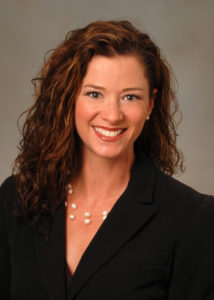 Family & Children’s Center’s Trauma Informed Care Initiative
Family & Children’s Center’s Trauma Informed Care Initiative
You probably didn’t know that that FCC’s initiative towards Trauma Informed Care goes back to 2008 when a group of six staff, including myself, attended “Creating Strength-based and Trauma Sensitive Care: Preventing the Need for Coercive Interventions”, a two-day training by nationally noted trainer and consultant, Beth Caldwell. This training placed specific emphasis on strength/resiliency-based approaches and trauma sensitive/informed treatment and support environments within human service and/or educational organizations serving children and families. Since then, FCC’s commitment to Trauma Informed Care has remained; however, we have struggled to “right size” our emphasis on this important initiative to ensure meaningful progress. At the beginning of 2016, we refocused our efforts by forming the Trauma Informed Care Committee made up of a cross-section of staff throughout the agency. These Trauma Informed Care Champions have helped us articulate our philosophy around Trauma Informed Care. A short version and a long version of the Trauma Informed Care Philosophy Statement follows:
Short Version:
Family & Children’s Center recognizes how widespread traumatic experiences are in our society and how those experiences impact one’s overall health and well-being. Trauma impacts all of us: our coworkers, those we serve, and ourselves personally. As a result, we must treat everyone with the care that assumes they may have experienced trauma. With that in mind, Family & Children’s Center operates with a trauma informed philosophy that embraces the principles of safety, trustworthiness, choice, collaboration, and empowerment, guiding us towards our mission of strengthening families and promoting individual well-being.
Long Version:
Family & Children’s Center recognizes how widespread traumatic experiences are in our society and how those experiences impact one’s overall health and well-being. Trauma impacts all of us: our coworkers, those we serve, and ourselves personally. As a result, we must treat everyone with the care that assumes they may have experienced trauma. With that in mind, Family & Children’s Center operates with a trauma informed philosophy that embraces the Five Primary Trauma-Informed Care Guiding Principles identified by Fallot and Harris (2006):
Safety –The setting and interactions are physically and psychologically safe.
Trustworthiness and Transparency –Ensuring trustworthiness through clarity and consistency.
Choice –Strengthening staff’s, participants’, and families’ experience of choice through active participation in decision-making regarding services.
Collaboration and Mutuality –Recognition that healing happens in relationships and meaningful sharing of power.
Empowerment – An individual’s strengths are recognized, built on and validated.
This philosophy and these principles guide Family & Children’s Center towards our mission of serving children, families, and individuals with a continuum of services designed to strengthen families and promote individual well-being.
The next step in FCC’s journey to becoming more trauma-informed is to assess our “baseline” related to Trauma Informed Care. After all, we cannot figure out how to get where we want to go if we don’t know where we are at. Within the next month or so, you will receive a request to complete a Survey Monkey questionnaire that will help us determine how well FCC aligns with the various Trauma Informed Care principles described above. We ask that you take the time to complete this anonymous survey with the end goal of helping FCC provide a more trauma-informed environment for all that come into our buildings or come into contact with us—be that our coworkers, clients, or community members. Thank you for your commitment to Trauma Informed Care.
I would also like to acknowledge the following Trauma Informed Care Champions!
Kayla Barnhardt, Community Respite
Melony Hansen, Viroqua Outpatient
Alicia Hengel, Winona Outpatient
Heidi Hovland, Matty’s Place
Amanda Jalensky, Coordinator of Community Services, WI, *Chairperson
Kristen Kingery, Coordinator of TFC and Respite
Leah Morken, Coordinator of Community Services, MN
Teresa Nundahl, WRIC CSP
Dianne Range, Hope Academy
Rhiannon Richardson, WRIC CSP
Therese Roellich-Bernadot, WRIC CSP
Darci Roesler, Coordinator of Adult Services
Mckenzie Scoville, Administration
Brienne Shaker, Stepping Stones
Vanessa Southworth, Director of Wisconsin Youth & Family Programs
